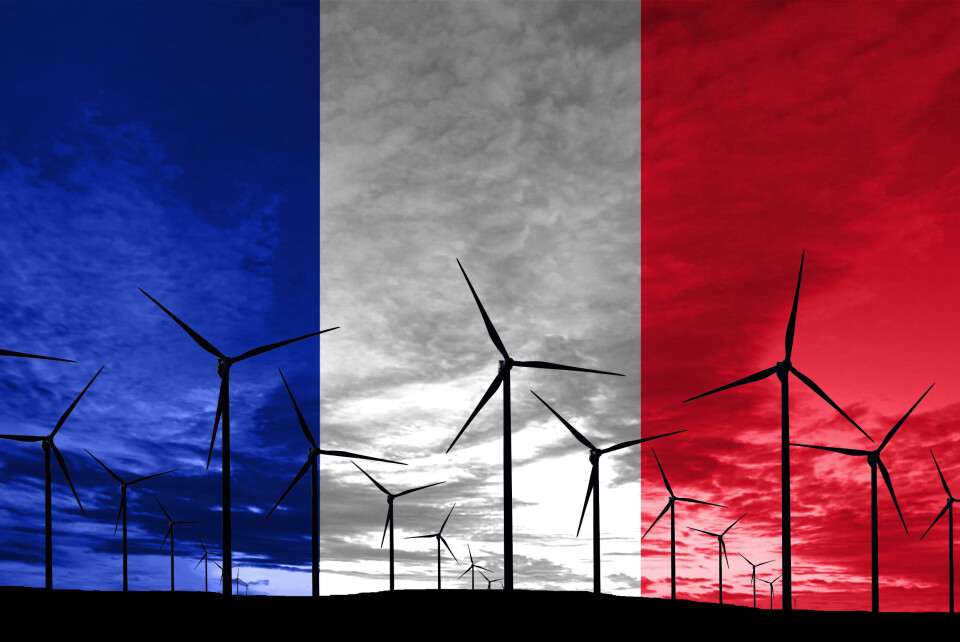-
La Voie Bleue: European Cycle Route of the Year is in France
700km bike path linking Luxembourg and Lyon has been crowned winner of the 2026 title
-
MAP: See how your location in France affects online food shop prices
New analysis shows how your shop compares on average
-
Further sightings of processionary caterpillars in France prompt action from local authorities
Caterpillars have arrived early after mild winter
France plans renewable energy boost as inflation threatens projects
It is the only EU country not to have achieved the target of having 23% of its electricity from renewable sources by 2020

France has announced a first package of emergency measures to speed up the development of renewable energy in the country, with several wind and solar projects currently threatened by inflation and rising construction costs.
The ministry of energy transition states that these projects are “essential to reinforce as quickly as possible our energy independence and to accelerate our carbon-free electricity production”.
The government estimates that between six and seven gigawatts of solar-generated electricity and five to six gigawatts of wind-generated electricity could be lost as projects struggle to manage rising costs.
“In this period of high inflation, the increase in the cost of construction materials is leading to the delay or even suspension of many renewable energy production projects, as their real costs are no longer covered by the state-guaranteed purchase price of electricity or biomethane,” a statement from the energy transition ministry reads.
France currently gets around 20% of its electricity from renewable sources. This makes it the only European Union country to have not achieved the objective of having 23% of its energy mix made up of renewable sources by 2020.
Read more: Solar panels on French property: how to make your own electricity
Plan to speed up renewable development
The energy transition ministry unveiled its first series of measures to speed up renewable power development on Sunday (July 28).
They are:
-
Renewable energy projects that are nearing completion can sell their electricity at higher rates for up to 18 months before the contracts signed during tenders come into effect
-
The rising cost of materials should be taken into account for all future renewable energy and biomethane projects
-
The lowered rates for installing solar panels on buildings should be frozen for the rest of this year
-
All renewable projects that have already won tenders can increase their output capacity by up to 40% before their completion
-
Biomethane production facilities that have obtained their environmental authorisation will benefit from additional time before having to start operations
Further measures are expected to be announced towards the end of the summer.
Jacques Percebois, economist and renewable energy expert, told Ouest-France that the measures “aim in particular at encouraging investment in renewable energy by ensuring certain benefits”, most of which are already in place.
He said that to go further, the government must target increasing wind power production.
Read more: Greenpeace France: Tackling climate change is our priority
Wind energy
France currently only has one active offshore wind farm located off the coast of Saint-Nazaire (Loire-Atlantique). It has 27 turbines already set up with 53 still to be completed by the end of this year.
Six other wind farms should be set up in France between now and 2027, located at: Fécamp (Seine-Maritime), the islands of Yeu and Noirmoutier (Vendée), Saint-Brieuc (Côtes-d’Armor), Courseulles-sur-Mer (Calvados), Dieppe-Le Tréport (Seine-Maritime) and Dunkirk (Nord).
Read more: Belgium complains to France over Dunkirk offshore wind turbine plan
Read more: France to build six nuclear reactors and 50 offshore wind farms
France currently produces around 16.5GW of wind-generated electricity, the latest EDF figures from 2019 show.
The government is aiming to have a production output of between 21.8GW and 26GW by 2023.
It is also aiming to increase its offshore wind-generated electricity output to 40GW by 2050.
France currently produces around 10GW of solar energy, EDF figures from 2019 show. The government is aiming to increase this to 100GW by 2050.
Related articles
EDF renationalisation plan: will it lower bills for users in France?
Coloured solar panels can offer solution for protected areas in France
France should ‘no longer need Russian gas within three to four years’
























